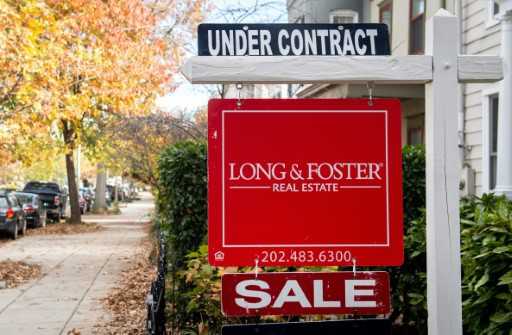Found in U.S., booming market highlights rich-poor divide
24 November, 2020

The U.S. real estate market is booming even while the coronavirus crisis intensifies, and the apparently insatiable appetite for fresh and aged homes has sent rates soaring -- meaning an increasing number of households with modest incomes are experiencing their dreams of owning real estate shattered.
"It quite definitely is a tale of haves and also have nots," said Dana Scanlon, a house agent found in the Washington area.
In a bid to mitigate the economical crisis provoked by the pandemic, the Federal Reserve slashed interest levels in March to near-zero.
As Scanlon explains, "that gives an extremely big boost to purchasing power for those people who still have careers... where they can home based."
For some, it has, perhaps counterintuitively, even meant a "little uptick in cost savings" as commuting and other costs have already been cut due to constraints on travel and eating out, she says.
Which means some families have significantly more money to spend on upgrading to a bigger home -- and even considering investing in a second home.
With many white-collar employees contemplating a long-term shift to telework, and children even now going to school over Zoom, the pandemic is still fueling demand.
That soaring upsurge in home buys has surprised industry experts, who still remember the way the market bottomed out through the financial crisis of 2008-2009.
But all isn't rosy for all Americans wanting to buy.
"There's a sort of a pyramid, or a ladder, of purchasers," says Scanlon, who functions in the U.S. capital, Maryland and Virginia.
Those moving into studios are looking for one-bedroom apartments, people in the one-room places are looking to go to a townhouse in the suburbs, therefore it proceeds.
In October, revenue of existing homes hit their highest level since early 2006, in line with the National Association of Realtors (NAR).
But a dip in the amount of available virginia homes has sent rates skyrocketing.
According to NAR info, the median cost for individual houses rose to $313,500 in the 3rd quarter, up 12 percent year-on-year.
The country's four primary regions saw double-digit increases -- 13.7 percent in the West, 13 percent in the Northeast, 11.4 percent in the South and 11.1 percent in the central U.S.
At this specific rate, the NAR said, house rates are rising four instances faster than median household income.
As a result, an increasing number of potential first-time residence buyers are finding themselves struggling to enter the market.
In fact, the percentage of first-time customers has dropped to 31 percent of the total in 2020, from 33 percent a year ago, in line with the NAR's chief economist Lawrence Yun.
"As a result of strong price gain, it is increasingly becoming more challenging for renters to save up for a deposit," Yun said.
Even so, in April and May, households with an increase of modest incomes could actually take benefits of low interest, said Tracey Scott, a real estate agent in West Virginia.
But since the summer season, Scott admits more and more of her clients have been well-off families from the higher Washington area.
"We are probably two time from Washington, DC," Scott advised AFP. "But we still contain a lot of terrain, mountain, rivers. The scenery is very beautiful in the mountains."
Some of Scott's customers are buying a second residence as an investment, but others are hoping to keep the city behind, now that offices certainly are a vestige of the Before Times.
Scott said she "completely" did not expect to see such demand -- her firm has seen at least a good 25 to thirty percent increase in the quantity of clientele seeking second homes.
The boom popular for second homes is two-fold -- as an investment but also as another potential primary residence if the trend towards telecommuting remains.
Scanlon agrees that work as we once knew chances are gone forever.
But she actually is upset about the inequalities in the marketplaces, saying: "Unfortunately, the have nots are definitely the kinds who lose the most in any sort of an monetary crisis."
For Yun, the only way to make it better for first-time customers is by "increasing source -- via homebuilding, for instance, and a motivation for property investors to sell their properties."
Source: japantoday.com
TAG(s):
